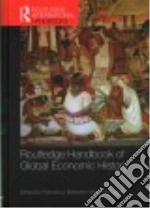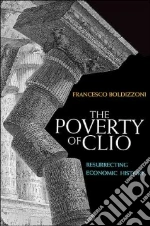 Libri di Francesco Boldizzoni su Unilibro.it
)
Libri di Francesco Boldizzoni su Unilibro.it
)
|
|
2021 |
 Title :
Quale futuro per il capitalismo? Speranze e illusioni da Marx a oggi
Title :
Quale futuro per il capitalismo? Speranze e illusioni da Marx a oggiAuthor: Boldizzoni Francesco Publisher: Editori Riuniti Il capitalismo è entrato trionfante nel XXI secolo, dopo aver consegnato al passato il comunismo suo rivale. Ma la Grande recessione e l'aggravarsi delle disuguaglianze hanno presto minato la fiducia nella stabilità del sistema e fatto riemergere antichi interrogativi sulle sue prospettive future. Il capitalismo sta finendo? Se sì, cosa potrebbe sostituirlo? E se resiste, come affronterà le nuove emergenze sociali e ambientali e gli inevitabili costi della distruzione creatrice? Francesco Boldizzoni mostra come queste e altre domande sono state al centro della teoria e della riflessione sociale dal tempo di Karl Marx alla nostra età di crisi, spaziando dalla filosofia all'economia, dalla sociologia agli studi culturali. Il capitalismo è sopravvissuto alle previsioni della sua scomparsa non perché sia un sistema particolarmente efficiente, né per qualche magica virtù dei mercati, come invece molti sembrano pensare, ma perché è radicato nell'individualismo e nelle strutture di potere delle moderne società occidentali. Tale consapevolezza conduce ad abbandonare tanto l'utopia quanto il fatalismo per imboccare la strada del cambiamento politico. € 22,00
Scontato: € 20,90
|
|
|
1916 |
 Title :
Routledge Handbook of Global Economic History
Title :
Routledge Handbook of Global Economic HistoryAuthor: Boldizzoni Francesco (EDT), Hudson Pat (EDT) Publisher: Routledge € 242,00
|
|
|
1911 |
 Title :
Poverty of Clio
Title :
Poverty of ClioAuthor: Francesco Boldizzoni Publisher: UNIVERSITY PRESSES The Poverty of Clio challenges the hold that cliometrics--an approach to economic history that employs the analytical tools of economists--has exerted on the study of our economic past. In this provocative book, Francesco Boldizzoni calls for the reconstruction of economic history, one in which history and the social sciences are brought to bear on economics, and not the other way around. Boldizzoni questions the appeal of economics over history--which he identifies as a distinctly American attitude--exposing its errors and hidden ideologies, and revealing how it fails to explain economic behavior itself. He shows how the misguided reliance on economic reasoning to interpret history has come at the expense of insights from the humanities and led to a rejection of valuable past historical research. Developing a better alternative to new institutional economics and the rational choice approach, Boldizzoni builds on the extraordinary accomplishments of twentieth-century European historians and social thinkers to offer fresh ideas for the renewal of the field. Economic history needs to rediscover the true relationship between economy and culture, and promote an authentic alliance with the social sciences, starting with sociology and anthropology. It must resume its dialogue with the humanities, but without shrinking away from theory when constructing its models. The Poverty of Clio demonstrates why history must exert its own creative power on economics. € 47,00
|
|
|
2008 |
 Title :
Means and Ends
Title :
Means and EndsAuthor: Boldizzoni Francesco Publisher: Palgrave Macmillan Capital has dominated the imagination of Western society from the Industrial Revolution. Means and Ends offers the first comprehensive interpretation of the rise, evolution and crisis of this concept from the sixteenth century to the modern day. Based on a wealth of primary sources it offers an exciting study of intellectual and cultural history. € 112,80
|